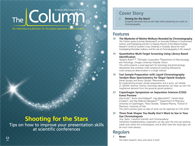Knauer Joins UN Global Compact
Knauer (Berlin, Germany) has joined the United Nations Global Compact movement, underlining their commitment to responsible corporate governance on an international level.
Knauer (Berlin, Germany) has joined the United Nations Global Compact movement, underlining their commitment to responsible corporate governance on an international level.
The UN Global Compact is the world’s largest initiative for responsible corporate governance, involving more than 12,800 companies and organizations from more than 160 countries. The initiative aims to create an inclusive and sustainable global economy based on 10 universal principles, including: humans rights, labour standards, environmental protection, and corruption prevention.
Managing director and owner Alexandra Knauer signed the commitment letter to adhere to the 10 principles of the Global Compact in the presence of about 70 cooperation partners of the company. The “International Dealers Meeting 2018”, which took place at the company’s location in Berlin, formed the appropriate international and festive setting. The letter is personally addressed to UN SecretaryâGeneral António Guterres.
For more information please visit www.knauer.net and www.unglobalcompact.org

New Method Explored for the Detection of CECs in Crops Irrigated with Contaminated Water
April 30th 2025This new study presents a validated QuEChERS–LC-MS/MS method for detecting eight persistent, mobile, and toxic substances in escarole, tomatoes, and tomato leaves irrigated with contaminated water.

.png&w=3840&q=75)

.png&w=3840&q=75)



.png&w=3840&q=75)



.png&w=3840&q=75)











